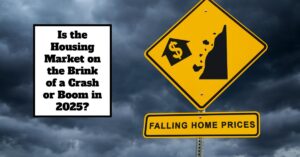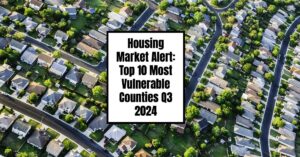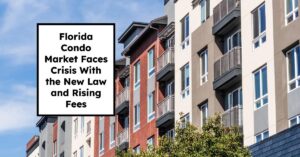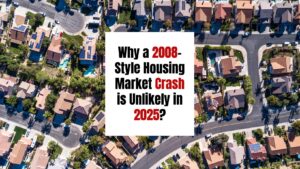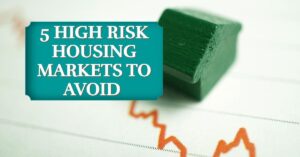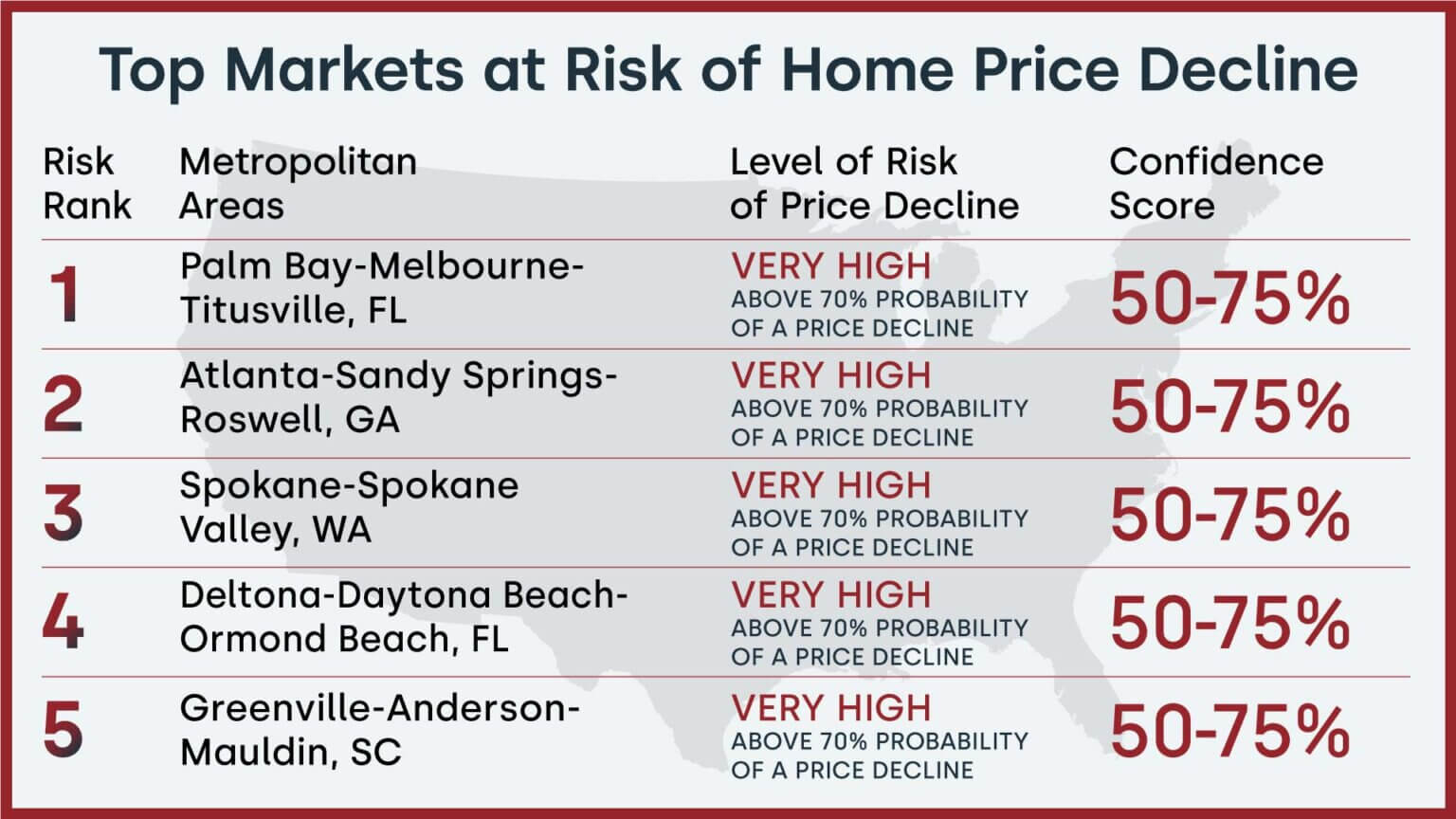Are you trying to figure out what's happening with home prices, how many houses are up for sale, and how quickly they're selling? Well, you're in the right place. This Weekly Housing Market Trends and Forecast offers a concise update: as of late January 2025, median listing prices have generally declined by -0.5% year-over-year, new listings are up significantly by 9.3%, active inventory has increased by 26.1%, and homes are spending 3 days longer on the market compared to last year. Overall, it's a mixed bag, but there are definitely opportunities for both buyers and sellers to navigate this changing market.
Weekly Housing Market Trends: What's Happening in 2025?
Navigating the housing market can feel like trying to predict the weather – one minute it's sunny, and the next it's raining (mortgage rates!). But don't worry, I am here to break down the latest trends in the housing market with data released by Realtor.com. I'll cover what these trends mean for you, whether you're looking to buy your first home, sell your current one, or just keep an eye on the real estate world.
What's Been Happening Lately? An Overview
Let's start with a quick summary of the key trends I am seeing in the housing market right now:
- Home prices: Generally flat or declining compared to last year.
- New listings: Significantly up, giving buyers more choices.
- Inventory: Much higher than last year, meaning more homes are available.
- Time on market: Homes are sitting on the market a bit longer, but the gap is narrowing.
These are the highlights, but let's dig a little deeper to see what's really going on.
Breaking Down the Numbers: Key Trends in Detail
Let's dive into the four key areas that are shaping the housing market right now.
1. Home Prices: Are They Finally Coming Down?
One of the biggest questions on everyone's mind is: are home prices finally dropping? For the past 35 weeks, the national median home listing price has been either flat or decreasing compared to the same time last year. That's a pretty long stretch! As of the week ending January 25, 2025, the median listing price fell by -0.5% year-over-year.
But here's where it gets interesting. A lot of the decline we're seeing is because there are more smaller, less expensive homes on the market. When you look at the median listing price per square foot (which takes the size of the home into account), it's actually up 1.3% compared to last year.
Even though prices per square foot are still up, the rate of increase has slowed down since May 2024. This could mean that even though smaller homes are available, softening price growth means that when mortgage rates do decline below current levels, homes become more affordable relative to last year. It’s a signal that the market might be stabilizing.
What does this mean for you?
- Buyers: There are more affordable homes available, especially smaller ones. If you're willing to downsize or consider a smaller property, you might find a good deal. And softening price growth means that when mortgage rates do decline below current levels, homes become more affordable relative to last year.
- Sellers: You need to be realistic about pricing. Don't expect to get the same prices that homes were fetching a year or two ago. Consider making your home more attractive to buyers by making necessary repairs and upgrades.
2. New Listings: A Breath of Fresh Air for Buyers?
For months, one of the biggest problems in the housing market has been a lack of homes for sale. But that's starting to change! New listings – the number of sellers putting their homes on the market – increased by 9.3% compared to last year for the week ending January 25, 2025. In fact, the final three weeks of January saw double-digit increases in new listings.
Why is this happening? There are a couple of possibilities:
- Sellers who were waiting for lower mortgage rates: When mortgage rates dipped slightly in the fall of 2024, some sellers may have decided it was time to list their homes.
- The “lock-in effect” is easing: Many homeowners have been hesitant to sell because they're locked into low mortgage rates. But life happens, and sometimes people need to move regardless of interest rates.
- People adapting to life changes: Some buyers are needing to finally adapt to life changes.
What does this mean for you?
- Buyers: You have more choices than you did a few months ago. Take advantage of this by carefully researching different neighborhoods and homes to find the best fit for your needs and budget.
- Sellers: You'll face more competition. To stand out, make sure your home is in tip-top shape and priced competitively.
3. Inventory: More Homes on the Market Than Last Year
Not only are more homes being listed, but the overall inventory of homes for sale is also up significantly. For the 64th week in a row, there are more homes for sale than there were at the same time last year. As of January 25, 2025, active listings were up a whopping 26.1% compared to last year. This is a good sign that the market may be starting to cool down.
What does this mean for you?
- Buyers: You have more leverage. With more homes to choose from, you're in a better position to negotiate price and terms.
- Sellers: It's more important than ever to make your home stand out. Pay attention to curb appeal, make necessary repairs, and stage your home to appeal to the broadest range of buyers.
4. Time on Market: Are Homes Selling Faster or Slower?
For months, homes have been sitting on the market longer than they were last year. As of January 25, 2025, homes were spending 3 days longer on the market compared to the same time last year. This is the 40th consecutive week that homes have taken longer to sell.
However, there's a glimmer of hope. The gap in time on market has been shrinking since November. This suggests that while inventory is up, buyer demand is also holding steady.
What does this mean for you?
- Buyers: You have a little more time to make a decision, but don't wait too long. If you find a home you love, it's still important to act quickly.
- Sellers: Be patient. It might take a little longer to sell your home than it would have a year or two ago. Don't be afraid to adjust your price if you're not getting offers.
Data Summary: A Quick Look at the Numbers
Here's a table summarizing the key data points as of January 2025:
| Metric | Year-over-Year Change |
|---|---|
| Median Listing Prices | -0.5% |
| New Listings | +9.3% |
| Active Listings | +26.1% |
| Time on Market | +3 days |
Recommended Read:
My Thoughts and Predictions
Based on these trends, here's what I think we can expect to see in the housing market in the coming weeks and months:
- Prices will likely remain relatively stable: I don't expect to see huge price drops, but I also don't think prices will start rising dramatically anytime soon.
- Inventory will continue to increase: As more sellers enter the market, buyers will have even more choices.
- Mortgage rates will be a key factor: If mortgage rates stay high, the market will likely remain sluggish. But if rates start to come down, we could see a surge in buyer demand.
- The market will vary by location: Some areas will be hotter than others. It's important to pay attention to what's happening in your local market.
Overall, I think the housing market is in a period of transition. It's not as crazy as it was a year or two ago, but it's not a buyer's market either. It's a more balanced market, where both buyers and sellers need to be smart and strategic.
Tips for Buyers and Sellers
No matter which side of the transaction you're on, here are some tips to help you navigate the current housing market:
For Buyers:
- Get pre-approved for a mortgage: This will show sellers that you're a serious buyer.
- Work with a good real estate agent: A knowledgeable agent can help you find the right home and negotiate a fair price.
- Be patient: Don't feel pressured to buy the first home you see. Take your time and find the right fit.
- Don't be afraid to negotiate: With more homes on the market, you have more leverage to negotiate price and terms.
For Sellers:
- Price your home competitively: Don't overprice your home. Work with your agent to determine a fair market value.
- Make necessary repairs: Fix any obvious problems before you list your home.
- Stage your home: Make your home look as attractive as possible to potential buyers.
- Be flexible: Be willing to negotiate with buyers.
The Bottom Line
The housing market is always changing, and it can be tough to keep up with the latest trends. But by staying informed and working with experienced professionals, you can successfully navigate the market, whether you're buying or selling.
I hope this article has been helpful. Happy house hunting (or selling)!
Work with Norada in 2025, Your Trusted Source for Investment
in the Top Housing Markets of the U.S.
Discover high-quality, ready-to-rent properties designed to deliver consistent returns.
Contact us today to expand your real estate portfolio with confidence.
Contact our investment counselors (No Obligation):
(800) 611-3060
Recommended Read:
- New Tariffs Could Trigger Housing Market Slowdown in 2025
- Housing Market Forecast 2025: Affordability Crisis Will Continue
- Lower Mortgage Rates Will Reignite the Housing Demand in 2025
- NAR Predicts 6% Mortgage Rates in 2025 Will Boost Housing Market
- Housing Market Forecast for the Next 2 Years: 2024-2026
- Housing Market Predictions for the Next 4 Years: 2025 to 2028
- Housing Market Predictions for Next Year: Prices to Rise by 4.4%
- Housing Market Predictions for 2025 and 2026 by NAR Chief
- Real Estate Forecast Next 5 Years: Top 5 Predictions for Future
- 2008 Forecaster Warns: Housing Market 2024 Needs This to Survive
- Real Estate Forecast Next 10 Years: Will Prices Skyrocket?

